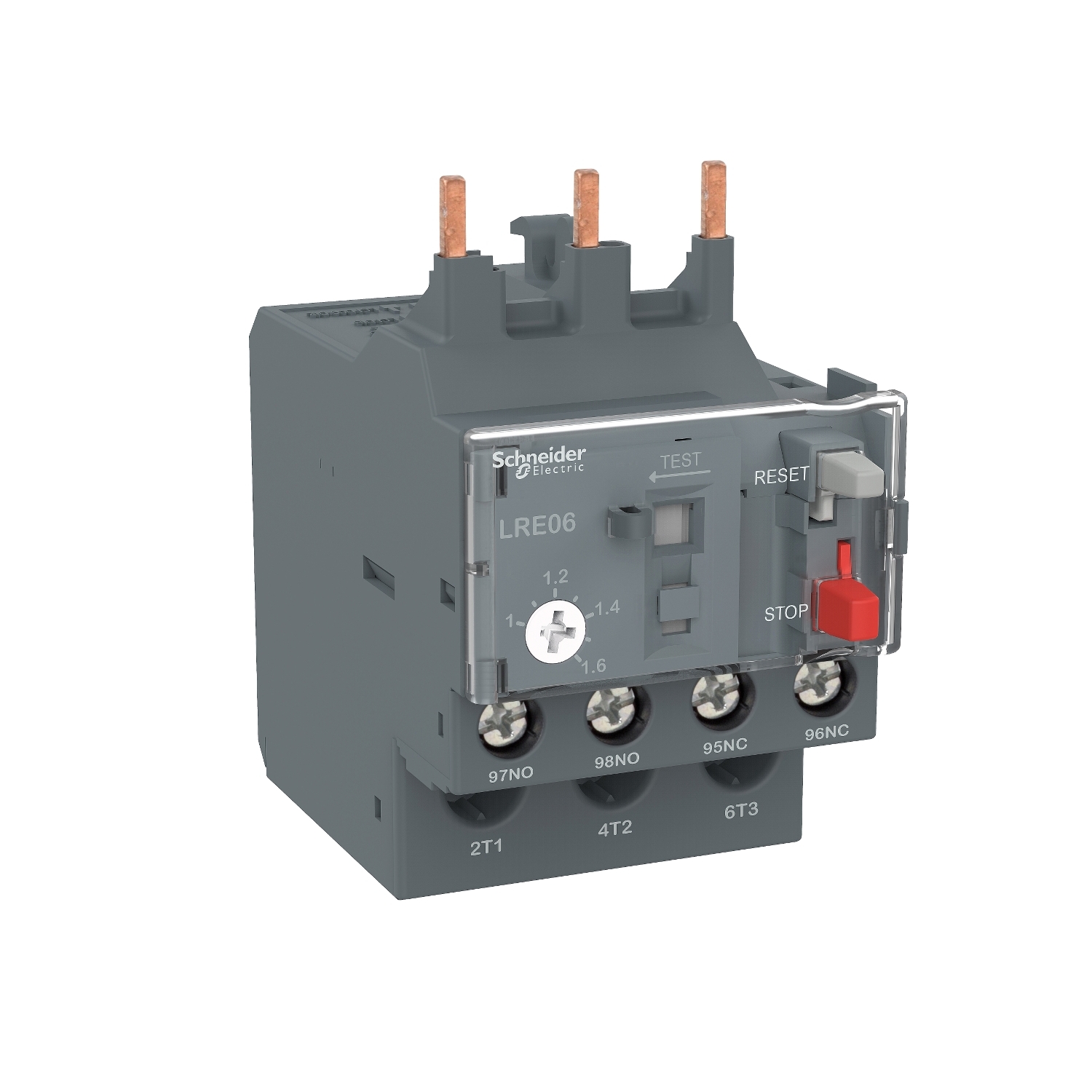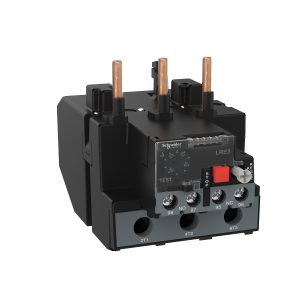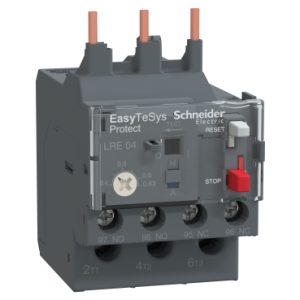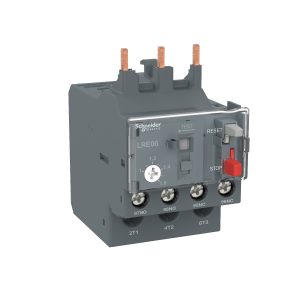Schneider LRE32 | Thermal overload relay,EasyPact TVS,23…32A,for LRE01…E35,class 10A
1,425 EGP2,638 EGP (-46%)
Schneider LRE32| Thermal overload relay,EasyPact TVS,23…32A,for LRE01…E35,class 10A
n
n
n
Schneider LRE32 Description
n
Overview of Schneider Electric
n
History of Schneider Electric
n
Schneider Electric is a global leader in energy management and automation, with a history dating back to 1836. Over the years, they have evolved from a steel manufacturer to a key player in industrial automation, focusing on efficiency and sustainability.
n
n
Core Products and Services
n
Schneider Electric offers a broad range of products, from simple electrical components to complex automation systems. Their portfolio includes circuit breakers, sensors, switches, and programmable logic controllers (PLCs), all designed to enhance industrial operations.
n
n
Understanding the LRE32
n
General Features
n
The Schneider LRE32 is a thermal overload relay designed to protect electrical motors from overload and phase failure. It’s known for its robustness and reliability, ensuring that motors operate safely and efficiently.
n
n
Specifications and Technical Details
n
-
n
- Voltage: 690V
- Current Range: 0.1 to 32A
- Operating Temperature: -20°C to +60°C
- Mounting: DIN rail or screw mounting
n
n
n
n
n
Key Features of LRE32
n
Digital Display
n
One of the standout features of the LRE32 is its digital display, which provides real-time monitoring and easy-to-read diagnostics, simplifying the troubleshooting process.
n
n
Programmable Settings
n
The LRE32 offers programmable settings, allowing users to customize its operation according to specific needs. This flexibility makes it suitable for a wide range of applications.
n
n
Compact Design
n
Despite its powerful capabilities, the LRE32 boasts a compact design, making it easy to integrate into existing systems without requiring significant space.
n
n
Applications of Schneider LRE32
n
Industries Using LRE32
n
The LRE32 is widely used in various industries, including manufacturing, mining, and energy. Its reliability makes it a preferred choice for operations that demand consistent performance.
n
n
Typical Applications in Automation
n
In industrial automation, the LRE32 protects motors in conveyor systems, pumps, fans, and other critical machinery, ensuring minimal downtime and maximizing productivity.
n
n
Installation Process
n
Pre-Installation Requirements
n
Before installing the LRE32, ensure you have the necessary tools and that the environment meets the specified conditions, such as temperature and humidity levels.
n
n
Step-by-Step Installation Guide
n
-
n
- Turn off power: Ensure the power is completely off to avoid electrical hazards.
- Mount the relay: Install the LRE32 on a DIN rail or use screws for secure mounting.
- Connect wires: Follow the wiring diagram to connect the relay to the motor and control circuit.
- Configure settings: Use the digital display to set the desired parameters.
- Test the system: Turn on the power and test the relay to ensure it operates correctly.
n
n
n
n
n
n
Programming the LRE32
n
User Interface Overview
n
The user interface of the LRE32 is intuitive, featuring a digital display and a set of buttons for navigation and setting adjustments. The menu is straightforward, allowing quick access to various settings.
n
n
Common Programming Tasks
n
-
n
- Setting current range: Adjust the current settings based on the motor specifications.
- Configuring delay times: Set the appropriate delay times to prevent nuisance tripping.
- Testing the relay: Use the test function to simulate conditions and verify the relay’s response.
n
n
n
n
Benefits of Using Schneider LRE32
n
Enhanced Efficiency
n
The LRE32 improves motor efficiency by providing accurate protection and reducing unnecessary downtime, which can lead to significant cost savings in the long run.
n
n
Reliability and Durability
n
Designed for harsh industrial environments, the LRE32 is built to last, offering reliable performance and reducing the need for frequent replacements.
n
n
Comparing LRE32 with Competitors
n
Key Competitors
n
Key competitors of the LRE32 include Siemens SIRIUS 3RU and ABB TA25DU. These relays offer similar functionalities but differ in features and usability.
n
n
Comparative Analysis
n
While competitors may offer comparable protection, the LRE32 stands out with its user-friendly interface, compact design, and robust performance. Its ease of programming and reliability make it a preferred choice in many industries.
n
n
Troubleshooting Common Issues
n
Identifying Common Problems
n
-
n
- Overheating: Check for proper ventilation and ensure the current settings are correct.
- Nuisance tripping: Adjust the delay settings and verify the motor’s load conditions.
- Display errors: Reset the relay or update the firmware if necessary.
n
n
n
n
Solutions and Preventive Measures
n
Regular maintenance, including cleaning and inspecting connections, can prevent many common issues. Keeping the firmware up to date also ensures optimal performance.
n
n
Maintenance Tips
n
Routine Maintenance Practices
n
-
n
- Regular inspections: Check the relay and connections periodically for signs of wear or damage.
- Cleaning: Keep the relay and surrounding area free from dust and debris.
- Firmware updates: Ensure the relay’s firmware is current to benefit from the latest features and improvements.
n
n
n
n
Long-Term Care and Upkeep
n
Schedule annual check-ups and calibrations to maintain the relay’s accuracy and reliability. Replacing worn components timely can also extend the relay’s lifespan.
n
n
User Reviews and Feedback
n
Insights from Industry Professionals
n
Professionals appreciate the LRE32 for its reliability and ease of use. Many note that it significantly reduces downtime and maintenance costs.
n
n
Common Praises and Criticisms
n
While the LRE32 is praised for its robust design and user-friendly interface, some users wish for more advanced features like remote monitoring capabilities.
n
n
Future Developments
n
Upcoming Features and Improvements
n
Schneider Electric continuously innovates, and future versions of the LRE32 may include enhanced connectivity options, such as IoT integration for remote monitoring and control.
n
n
Trends in Industrial Automation
n
The trend towards smarter, more connected devices is likely to influence future iterations of the LRE32, making it an even more integral part of industrial automation systems.
n
n
FAQs About Schneider LRE32
n
What is the primary function of the Schneider LRE32?
n
The primary function of the Schneider LRE32 is to protect electric motors from overload and phase failure, ensuring safe and efficient operation.
n
n
How do I program the LRE32?
n
Programming the LRE32 involves using its digital display and buttons to set parameters such as current range and delay times, following the user manual for detailed instructions.
n
n
Can the LRE32 be used in harsh environments?
n
Yes, the LRE32 is designed to operate reliably in harsh industrial environments, with a wide operating temperature range and robust construction.
n
n
What industries commonly use the LRE32?
n
Industries such as manufacturing, mining, and energy commonly use the LRE32 due to its reliability and efficiency in protecting critical machinery.
n
n
How often should the LRE32 be maintained?
n
Routine maintenance should be performed regularly, with detailed inspections and calibrations at least once a year to ensure optimal performance.
n
n
Conclusion
n
The Schneider LRE32 is an essential component in industrial automation, providing reliable protection for electric motors. Its robust design, ease of use, and versatility make it a preferred choice across various industries. Whether you’re installing a new system or upgrading an existing one, the LRE32 offers the efficiency and reliability needed for modern industrial operations.




